Another foreign judge is departing Hong Kong’s Court of Final Appeal, the third to do so amid a broadening crackdown on dissent, as a former colleague said the city is becoming ‘a totalitarian state.’
Canadian Judge Beverley McLachlin, who joined the court in 2018, has said she won't be staying on when her term as non-permanent judge of the Court of Final Appeal ends next month, she told journalists on June 10.
Last week, Jonathan Sumption and Lawrence Collins also resigned as non-permanent overseas judges in Hong Kong's Court of Final Appeal, with Collins citing "the political situation" in the city and Sumption penning an article saying judges are 'intimidated' by the emphasis on security.
The presence of foreign judges was widely seen as a bellwether for Hong Kong's ability to maintain itself as a separate, common law jurisdiction in the face of huge political pressure from the ruling Chinese Communist Party.
The exodus has come just a few weeks after Hong Kong passed a second security law, known as Article 23, that analysts say effectively imports the mainland Chinese concept of "national security," which includes cracking down on political dissent and criticism of the authorities, into the city's judicial system, which was once famed for its impartiality.
McLachlin, 80, said she will step down on July 29, when her term ends.
"It has been a privilege serving the people of Hong Kong," McLachlin said in a statement. "I continue to have confidence in the members of the court, their independence and their determination to uphold the rule of law."
‘Totalitarian state’
Eight judges from the United Kingdom, Australia and Canada currently sit on the Court of Final Appeal, which replaced Britain’s Privy Council as the city’s highest judicial authority after the 1997 handover to Chinese rule. Usually, an appeal panel would include the chief justice, three Hong Kong judges and a non-permanent judge who could be a foreign national.
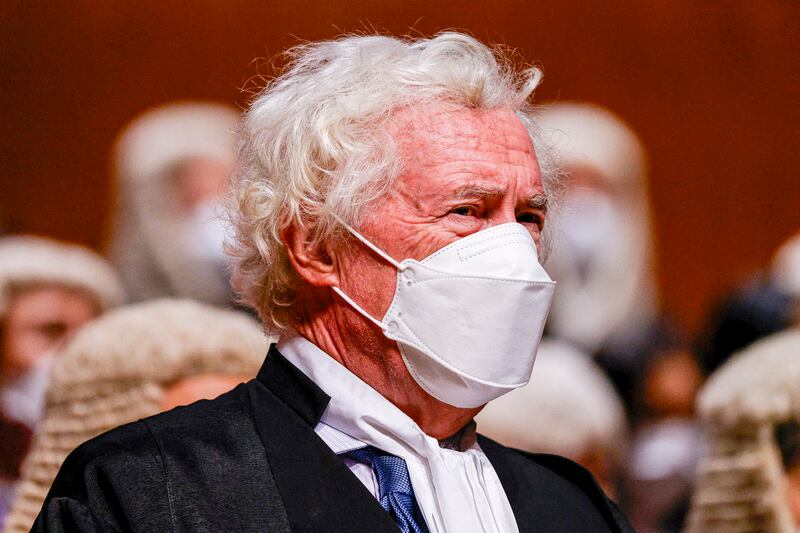
Jonathan Sumption warned on Monday that the freedom of judges to adjudicate has been "severely" limited by the use of two national security laws and some reactivated colonial-era legislation to clamp down on any public expression of dissent.
"Hong Kong, once a vibrant and politically diverse community, is slowly becoming a totalitarian state," Sumption wrote in a June 10 commentary in the Financial Times. "The rule of law is profoundly compromised in any area about which the government feels strongly."
"Intimidated or convinced by the darkening political mood, many judges have lost sight of their traditional role as defenders of the liberty of the subject, even when the law allows it," he wrote.
Sumption described the recent convictions of 14 prominent pro-democracy activists for subversion as "indefensible," given that their plan had been to use the Legislative Council to put pressure on the government in a way that is expressly permitted by the city's constitution, the Basic Law.
The convictions concluded a 118-day mass trial of pro-democracy politicians and activists for organizing a primary election in the summer of 2020.
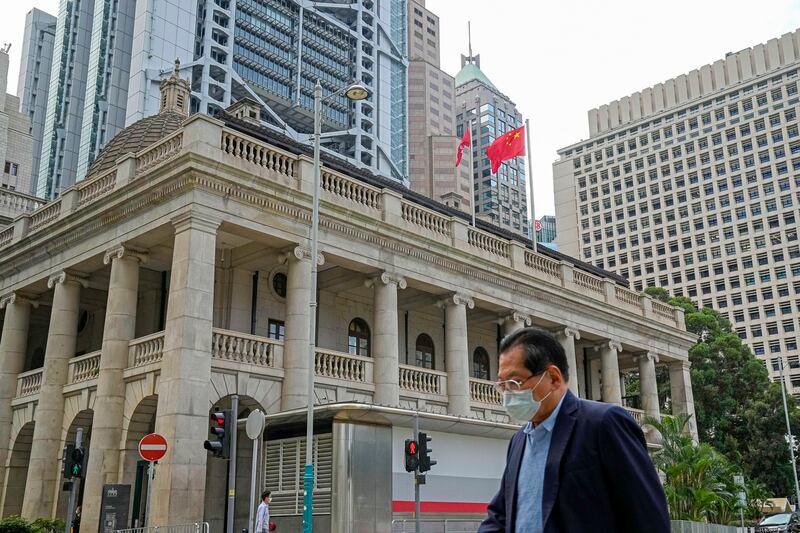
Hong Kong returned to Chinese rule in 1997 amid promises that it would keep the freedoms that once ensured its status as an international financial hub.
The convictions were "symptomatic of a growing malaise in the Hong Kong judiciary," Sumption wrote, describing the majority of Hong Kong’s judges as "honorable people with all the liberal instincts of the common law."
"But they have to operate in an impossible political environment created by China," he said, citing the "illiberal" national security legislation and the government's "paranoia" about the slightest expression of even peaceful political dissent.
He said the authorities had overreacted by legislating in the wake of the mass protests in 2019, and that "the ordinary laws of Hong Kong were perfectly adequate for dealing with them."
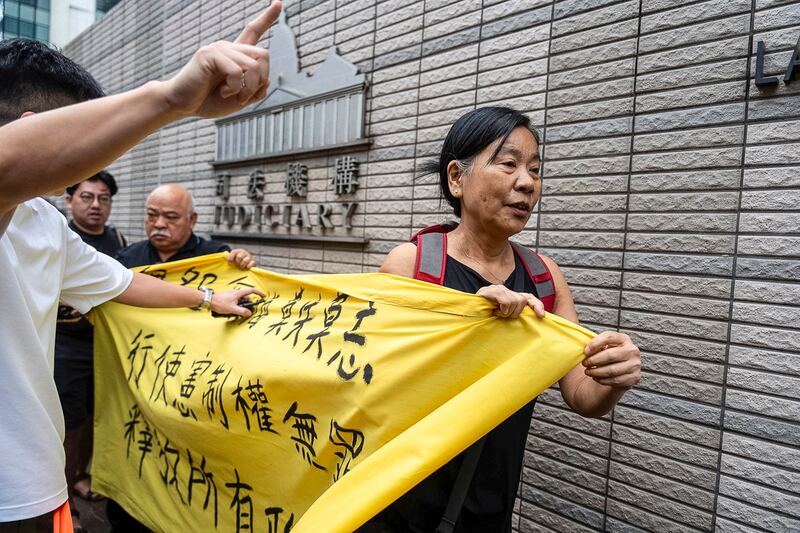
"It requires unusual courage for local judges to swim against such a strong political tide," he said, in a reference to the government’s insistence on using national security to suppress dissent. "Unlike the overseas judges, they have nowhere else to go."
Sumption resigned last week alongside fellow non-permanent judge Lawrence Collins, with Collins citing "the political situation."
‘Striking the right balance’
Hong Kong Chief Justice Andrew Cheung responded to the article by saying that "a tension often exists between protection of fundamental rights and safeguarding national security, both of which the Hong Kong Judiciary is firmly committed to doing."
"Striking the right balance in individual cases can be difficult and outcomes controversial at times," he said, but added: "It is one thing to disagree with a court's decision, but it is quite another to suggest that fundamental rights have been compromised because of political concerns."
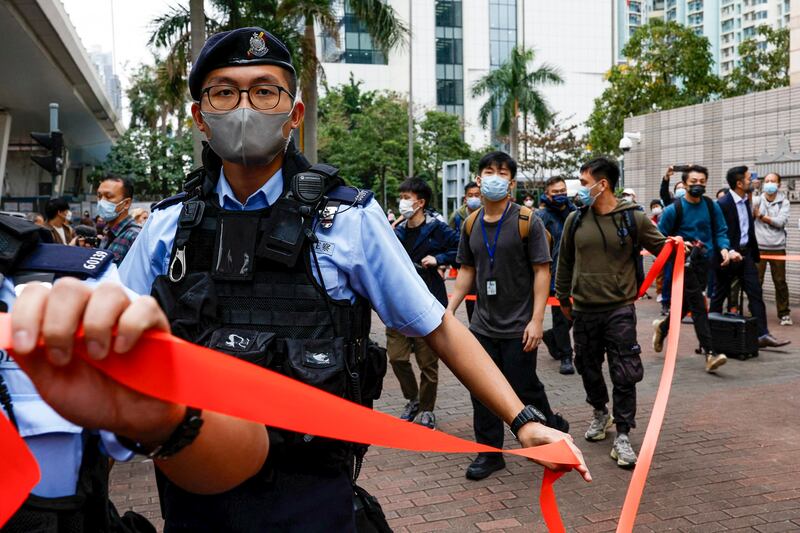
Non-permanent Court of Final Appeal judges Robert Reed and Patrick Hodge stepped down in March 2022 citing the crackdown on dissent under the 2020 National Security Law.
Hong Kong Chief Executive John Lee on Tuesday said Hong Kong was "safer, and more stable," and that judges weren't qualified to comment on politics.
"A judge is entitled to his personal political preferences," Lee said. "But that is not a judge’s area of professional expertise."
A judge ... may like a particular law or not, but his professional duty is to interpret and apply that particular piece of law in accordance with legal principles and evidence, ... not from his political stance," he said, adding that "people shouldn't confuse democracy with the rule of law."
He denied any political interference in Hong Kong's judicial affairs, although his predecessor Carrie Lam and Chinese officials have said the city doesn't enjoy the separation of powers as it is commonly understood in a democratic country.
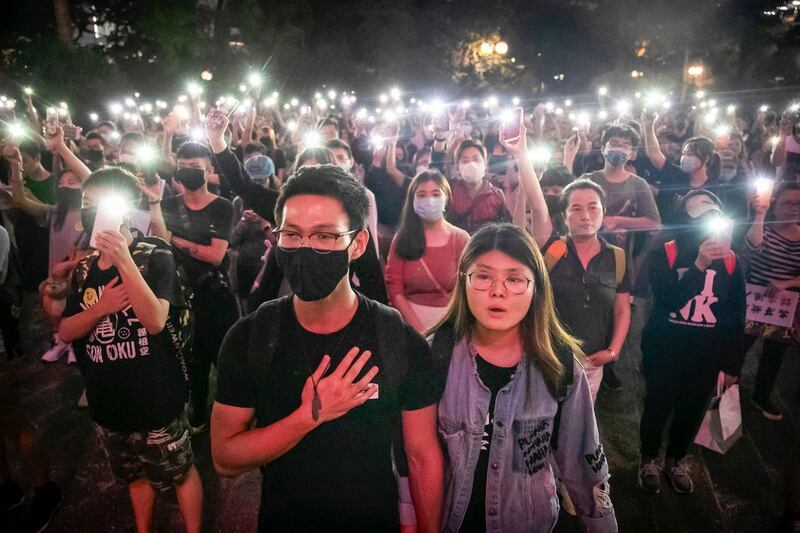
Eric Lai, a research fellow at the Center for Asian Law at Georgetown University, said the guilty verdicts for the pro-democracy activists had likely forced the overseas judges to the realization that judicial independence in Hong Kong is a thing of the past.
"Lord Sumption has made it very clear that it's impossible for a lot of Hong Kong judges to carry on in the political atmosphere that exists under Chinese rule, and still hold true to liberal, common law principles," Lai said.
"It shows that it's impossible for Hong Kong to fully enjoy the rule of law under the national security laws," he said.
Tokyo-based human rights researcher Patrick Poon said John Lee was trying to explain the law to judges, which he said was ridiculous.
"Under the National Security Law, even commemorating the Tiananmen massacre is considered incitement to subversion," Poon said. "How can there be any fair legal process in such a context? There is no fundamental protection for human rights."
"All judges are allowed to do is help the government suppress dissent," he said.
Translated by Luisetta Mudie. Edited by Malcolm Foster.
